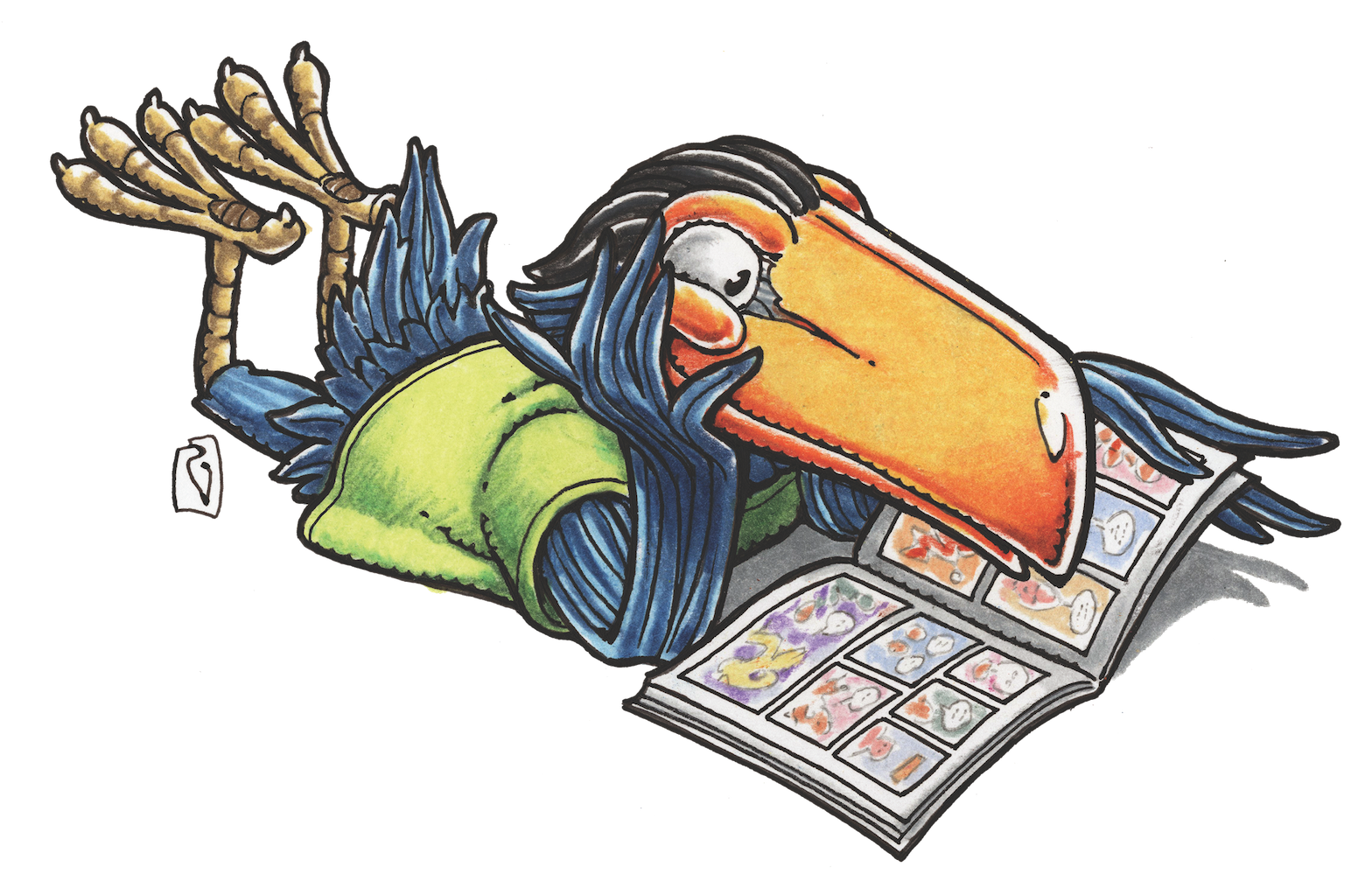STEVE LIEBER’S DILETTANTE
Dilettante 009: Forming A Studio


I’m a founding member of Periscope Studio, a Portland, Oregon workspace shared by two dozen cartoonists and comic book makers, plus friends of the studio, interns, and visiting artists. As far as we know, we’re the biggest such group in the Englishspeaking world, though I’m not sure if anyone’s keeping track of these things.
One question I’m frequently asked: “How do you build something like that?”
We started with a bunch of cartoonists meeting for coffee every week. This is where I suggest anyone who wants to build a studio should begin. Weekly or bi-weekly meetings, a drink and draw, something like that. It’s important to get a feel for who you like and what the social dynamics of the group might be.
Many of us had been members of shared studios before, and we decided to try to set up a new one. A core group of a few organizers sent out emails to everyone they thought might make a good member. We invited them to come to a meeting to discuss how things might work.
At the meeting, we set up a few goals and rules, got a grasp of how many people were interested and figured out how much we could collectively afford to spend. Then we called for volunteers to run around town looking at possible spaces. Once we found a space that people could agree on and afford, we rented it and started setting things up. Our structure was organic, and we figured out answers to problems as they came up. One thing I’d suggest figuring out when you first organize is deciding how you make decisions: Majority rule? Two-thirds? Unanimous?
Our new members have come from two places: former interns, and working creators who were invited to visit and clicked well enough with the group that people started wondering if we should invite them to join. We worked out the process over time, though it always starts with a sense that someone felt like a good fit. People email each other. We take a vote. We’ve had to close the doors on new members. There’s no more room!
When Periscope started, we didn’t have any shared equipment. But when one artist upgraded to a better printer at home, he donated his old one. Other times, the people who could afford to contribute would pitch in money together to replace a broken scanner or a buy a software upgrade. When a big job comes in, we’ll occasionally agree to split the work and dedicate a portion of the income to buying a new computer or something like that.
Initially it wasn’t easy to get people to kick in money for collective goals. (“I’ve already got a laptop. Why would I spend money on another computer?”) But over time it became clear to everyone that, for a variety of reasons, anything that benefits my studio-mate has real and observable benefits for me, too.
Tasks get split up on a volunteer basis—mostly because someone gets irritated that something needs to be done. We had a bad website for years, so someone took a weekend and built a functional Word Press site. Someone else got tired of the functional but bare-bones design and reworked it into something snazzier. Another member felt our intern program needed to be better organized and took that over. Another set up our Etsy store and does the shipping. Over 11 years, we’ve accomplished a lot this way.
We have three levels of membership, “Senior” “Junior” and “Float.” Seniors pay the most. Juniors pay a little more than half of what Seniors pay. Floats don’t have any space of their own; they use whatever table is available that day. They pay a little more than half of what Juniors pay. People decide for themselves when they’re ready to move up and pay more, or if they’re in trouble and need to pay less for a few months. We set our rents so that there’s a little extra saved each month in case someone goes through a rough patch. We’ve never come up short. We also have an Etsy store where our members can contribute sketches, or signed books, or original art to help pay for stuff like printer paper, toner, light bulbs, etc.
Money is going to be the hardest part in forming a studio, particularly in the beginning. Make sure to set up your finances so that if someone leaves, the group can continue. At the very least, try to make sure it’ll be possible to dissolve the collective without causing big problems for the person whose name is on the lease.
Fortunately, that’s not something Periscope will have to face any time soon. In fact, after eleven years as an informal collective, we’ve formalized our structure and become an LLC. But that sort of development is never the driving force in a studio like Periscope. Our goal of having a studio is the same now as when we started: to have a fun, supportive space where we can make great comics and art.
Any questions? Ask me on Twitter! @steve_lieber
Steve Lieber’s Dilettante appears the second Tuesday of every month on Toucan!